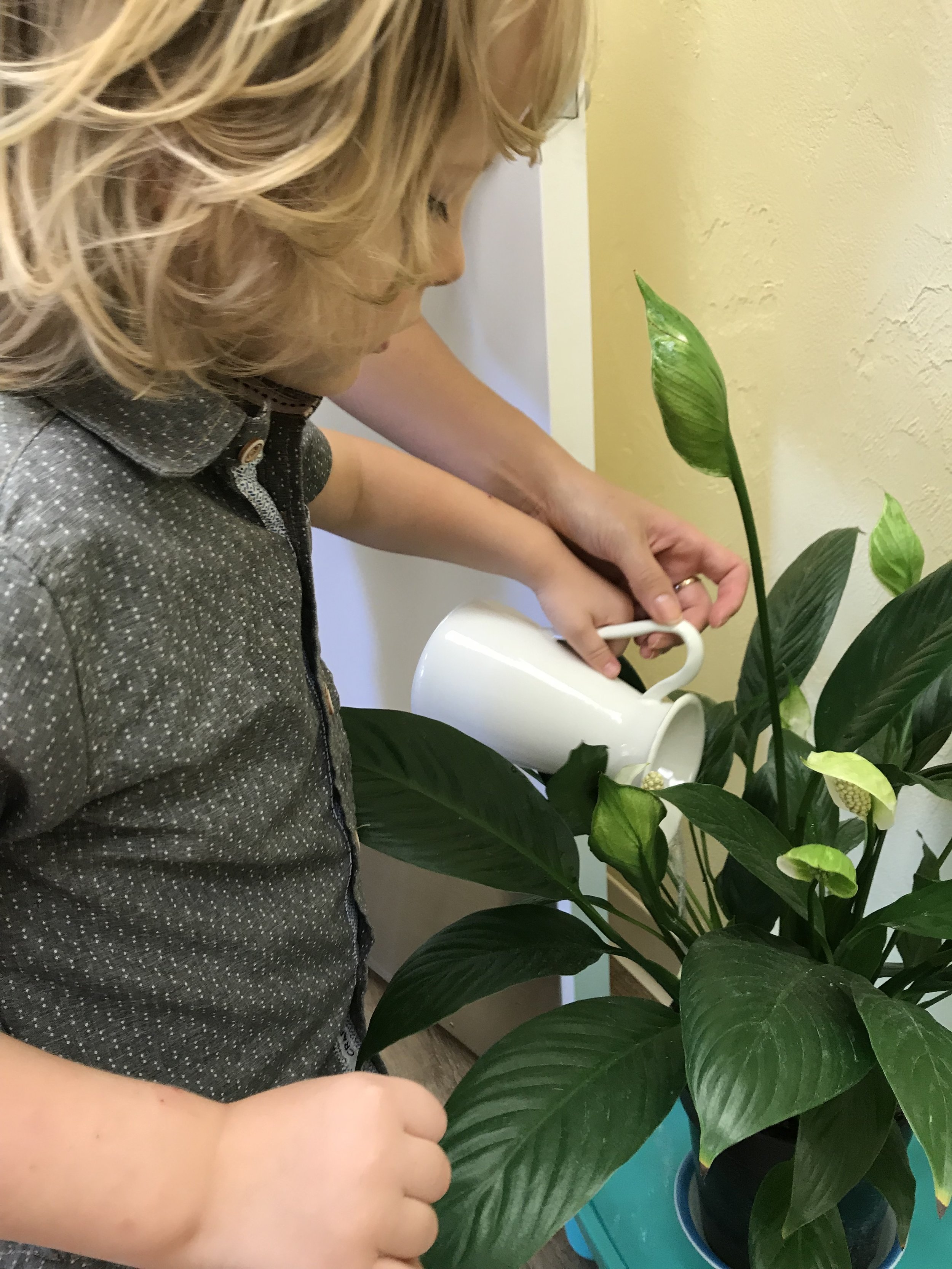Montessori
The Montessori Theory revolves around three core facets: child, teacher, and environment!
The Child
“Free the child’s potential, and you will transform him into the world.”
Maria Montessori calls the child’s mind between the ages of birth to six, "The Absorbent Mind". In this period, the child possesses an incredible capacity of mental absorption to learn language, perfect movement and internalize order. She observed that children also experience "Sensitive Periods" in their developmental stages. These are periods of special sensitivity when the child is attracted to certain stimuli in his/her environment, allowing them to acquire certain knowledge and master skills. Maria Montessori also observed that the child is undergoing a process of self-construction.
The Montessori curriculum and materials aid the child’s ability to absorb knowledge and continue this path of self- construction. Dr Maria Montessori studied the various developmental stages of a child. She grouped children into 0-3 years,3-6 years 6-9 years and 9-12 years of age. Due to her observations and experience she concluded that children work better in mixed age groups,she divided these age groups according to developmental planes. This vibrant community of children interact socially in variety of ways, older children teach the younger ones and learn much themselves from the experience while the younger ones are inspired to do more advance work through observing the older children. Our Montessori is structured for the primary age group.
In this well thought out set-up of our learning environment, our goal is that children at Learning Minds Montessori grow and develop an inner joy of learning.
The Teacher
“To aid life... that is the basic task of the educator.”
A Montessori classroom typically has a trained lead Montessori teacher known as the Director or Directress who is assisted by an aid. Lessons on Montessori materials are presented to the child by the lead teacher in a clear and simple method.The teacher is basically a facilitator whose job is to understand the child's innate ability to learn, provide the child with the age -appropriate materials in a Prepared Environment so that the child can reach his/her full potential.
Our founder and senior most Montessori Directress is AMI trained with 25 years of teaching experience in Early Childhood Education.
The Environment
“The child can only develop fully by means of experience in his environment. We call such experience ‘work’.”
The Montessori Environment is called the prepared environment created for the child by the Montessori Directress.The aim to create such an environment is to reinforce the child's independence and natural urge towards self development.The key points that are kept in mind when developing the Prepared Environment are order, simplicity and accessibility. We at Learning Minds Montessori have followed these principles in creating our learning environment for our children. Our materials are age-appropriate and are placed on low shelves to enhance children's independence. Each piece of our materials has been carefully selected and has a specific teaching purpose.The materials are presented to the children by the Montessori Directress in a manner that focusses direct learning.Our Montessori materials stimulate the child into logical thinking and discovery. Each piece of Montessori material presents one concept at a time and has what is called "Control of Error". If the child has used something incorrectly,it will be self-evident.For example, the cylinders of the Cylinder Block will only fit in the correct socket or there will be an extra spindle left or not enough to finish the correct placement of the spindles to the coessponding numbers in the Spindle Boxes.Being able to see his/her own mistakes also teaches the child to be independent and confident.
Based on Dr. Maria Montessori's knowledge and philosophy, we have organized our preschool in the areas of Language, Math, Sensorial, Exercises of Practical Life and Culture. We also give emphasis to Music, Art and STEM.

